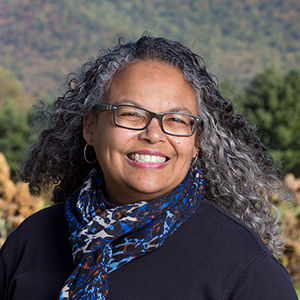Managing underrepresentation
in science
In the first article in this series, five African-American men in the molecular biosciences discussed mentoring and other factors that led to their career decisions and contributed to their persistence in the science, technology, engineering and math career pipeline. This article will focus on challenges and impediments that may be unique to this demographic group and the strategies these five men have developed to overcome those challenges.
African-American men are highly underrepresented in the sciences. According to the Survey of Earned Doctorates, African-American men earned only 214 of the 12,520 doctorates awarded in the life sciences in 2015. Although this represents a nearly 1.5-fold increase over the 2006 number, it is still only 1.7 percent of earned doctorates in our field (and far below the percentage of African-American men in the U.S. population, approximately 6.5 percent).
Politics, science and race
The men surveyed for this article (see box) provide insights from the era before Barack Obama was elected president (when Carleton Barbour and Craig Cameron trained) versus the years after the first Obama election (when Nisan Hubbard and Christopher Barnes have been in training). Though none perceived a change in his experience as an African-American man related to Obama’s election, each commented on the impact of politics on science.
“My status quo has been remarkably steady over the past 21 years,” Cameron said. “The doubling of the NIH budget during the Clinton administration contributed to this stability early.”
The Obama administration’s focus on STEM increased awareness, Barnes said, and programs such as the National Cancer Institute’s Cancer Moonshot and the National Institutes of Health’s Brain Initiative provided more funds to the scientific community.
Hubbard wondered if certain priorities would continue. “With Obama, there was an increasing initiative for diversity in STEM with a focus on progressing science in society,” he said. “We are about halfway through Trump’s term, so we will have to see if he is going to quell that or keep the needle where it is in terms of the diversity initiatives.”
Imposter syndrome
Originally defined in a 1978 paper, imposter syndrome is the self-perceived notion that one is not worthy, a fraud or an imposter. Although many high-achieving people suffer from imposter syndrome, studies show the incidence is particularly high in women and minorities in STEM disciplines.
Chaney summarized the sentiments of all five participants. “While the Obama presidency solidified for me and my colleagues that nothing was impossible for a person of color, I cannot say that there were any concrete changes in my experience as an African-American biochemist,” he said. “The truth is that there are still real obstacles out there, particularly for underrepresented persons, and we all must do our part to help the next generation of scientists realize their dreams.”
Hubbard, the youngest participant, described his challenges. “There are not many people who look like me in this field, so it feels sometimes that there is a certain stigma that I am fighting against while trying to excel and achieve within my work and in the community,” he said. “There is also the ‘imposter syndrome’ that is prevalent among people of color within higher education at these stages (or any stage, for that matter).”
Barbour, the oldest in the group, had similar concerns. “The most challenging part of (my) career has been managing my perceptions of the stereotypes applied to African-American men,” he said. “It was reinforced early in my career that some supervisors and colleagues would judge my performance based on my race and not my productivity.”
The men were generally optimistic, however, and emphasized the importance of supportive relationships and programs.
Joseph Chaney explained, “My ethnicity has never been a hindrance in my career because I have been fortunate to be surrounded by people who challenged me to aim for high goals and to not be afraid to have unique interests. I have had to get used to being the only minority in the room often at dinners, meetings and conferences.”
Cameron expressed similar sentiments: “Without positive people and positive environments, my minority status could have easily disincentivized my pursuit of science and being a scientist.”
Managing the impact
Each man said that support was instrumental in his persistence and success. Sources of support included the federal Minority Access to Research Careers and Alliances for Graduate Education and the Professoriate programs; institutional fellowships and assistantships; and private sources including the Burroughs Wellcome Fund.
Barnes said his ethnicity has provided opportunities that benefited his career. “While some may view programs to increase diversity as an unnecessary helping hand that gives women and minorities an unfair advantage, I believe that if the playing field was fair, such programs wouldn’t need to exist,” he said. “By embracing these programs throughout my career as a scientist, I have provided myself opportunities to discuss my work at numerous scientific meetings, obtained my own funding and expanded my scientific network in ways that I could not have done.”
The participants also commented on the unique opportunities to “give back” that were afforded to them as African-American men.
Hubbard was an assistant coordinator for Northwestern University’s Summer Research Opportunities Program, helping to develop programming to train summer scholars. “This role provided a way to help refine and prepare the next generation of researchers and peers to help advance knowledge and foundations of learning,” he said, “while encouraging students of a wide variety of backgrounds to pursue a Ph.D. in their fields.”
Opportunities to give back were not limited to academics. Through his work with chemical manufacturer Rohm and Haas, Barbour became a campus recruiter and participated in the National Organization of Black Chemists and Chemical Engineers. “I believe Rohm and Haas encouraged me to take on the recruiter role to increase the diversity of their campus recruiters,” he said. “It showed my employer trusted my judgement to find and attract future generations of company employers. My involvement provided opportunities to demonstrate job skills my science job did not require.”
Although they emphasized the importance of seizing opportunities, the participants also recognized the challenge of doing so — especially when one is the only African-American man in the room.
To this day, Cameron is often the only black male scientist, or one of a few, at meetings or serving on boards, he said. “For an adult, this can be an intimidating situation. So, as a trainee, this circumstance was absolutely terrifying. I was blessed to have welcoming and nurturing people around me in most of these situations.”
Love of science
Another convergent theme was the participants’ love of science and its impact on their persistence in their career paths.
“I am passionate about applying scientific principles to solve practical problems,” Barbour said. “I love it when a plan comes together. The most rewarding part of my career has been sharing knowledge with colleagues and using the shared experience to solve problems. While only a few of my projects have reached approval and commercialization, the product development journey continues to fan my passion for science.”
Barnes, a generation younger, expressed similar sentiments. “I think the most challenging part about this career is that you will inevitably fail more times than you will succeed, no matter how hard you work or try to solve a problem,” he said. “Working on a project for months to years at a time and not seeing progress is very challenging and will oftentimes make you question your own abilities. So, learning to persevere despite these challenges and setbacks is a skill that is essential to becoming a good scientist.”
In a comment that will likely resonate with most molecular bioscientists no matter their race, ethnicity, age or subfield specialty, Barnes said, “The most rewarding part of this career is the realization of data that help support your hypotheses. Knowing that science is mostly failures, those moments are truly exhilarating, especially when the data leads to scientific breakthroughs or opens up a new path in your field.”
Career-life balance
Most researchers appreciate that breakthrough moments can be few and far between. While it is challenging for any molecular bioscientist to remain optimistic and focused between breakthroughs, this can be particularly true for African-American men, who sometimes lack the nurturing support systems that others take for granted. Our participants emphasized the importance of keeping things in perspective and maintaining appropriate career-life balance.
“The most challenging part of my job is time management,” Chaney said. “As a new professor, I have learned that there are many responsibilities, and all of them are important, but not all of them are important at the same time. So, finding that balance is what I am constantly working on improving.”
Cameron echoed this theme, “Science is indeed my hobby, so it is easy to be completely consumed by science and being a scientist,” he said. “My greatest challenge therefore is managing my time to give equal time to the many other activities and people that I enjoy.”
Barbour took this topic a step further, reflecting on the direct relationship between self-care and career success. “Throughout my early career, I focused on avoiding failure at work, not achieving success,” he said. “This perspective resulted in stress and little time away from the job to rest, recharge and enjoy family life.”
These comments illustrate some of the challenges that African-American men face and provide insight into the strategies these five individuals have used to face those challenges and succeed in their careers. In next month’s article, they will offer advice for aspiring scientists in hopes that the next generation of molecular bioscientists will be more diverse and closely aligned with the demographics of the U.S. population.
A three-part series
This is the second of three articles exploring the experiences of African-American men in the molecular biosciences through interviews with five African-American men at various stages in their careers, including two students, two faculty members and a researcher in the biotechnology industry.
The careers of these five men span nearly four decades when taken together and include experiences in academia, industry and consulting. Although each has had unique experiences, the commonalities in their stories provide insight into the challenges and opportunities facing African-American men in the molecular biosciences. This series is an exploration of their lived experiences, hopes for the future and advice to the next generation of African-American men who aspire to careers in the molecular biosciences.
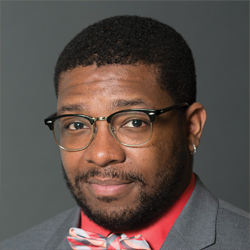 Nisan Hubbard, a doctoral candidate at Northwestern University, is completing a Ph.D. in reproductive biology.
Nisan Hubbard, a doctoral candidate at Northwestern University, is completing a Ph.D. in reproductive biology.
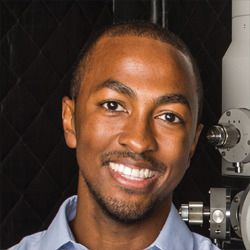 Christopher Barnes is a Howard Hughes Medical Institute Hannah Gray postdoctoral fellow in Pamela Bjorkman’s laboratory at the California Institute of Technology.
Christopher Barnes is a Howard Hughes Medical Institute Hannah Gray postdoctoral fellow in Pamela Bjorkman’s laboratory at the California Institute of Technology.
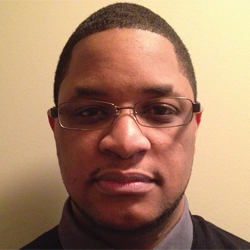 Joseph Chaney is an assistant professor of biochemistry at Xavier University of Louisiana, where he studies molecular nanomotors.
Joseph Chaney is an assistant professor of biochemistry at Xavier University of Louisiana, where he studies molecular nanomotors.
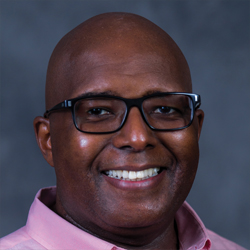 Craig Cameron holds the Eberly family endowed chair in biochemistry and molecular biology at the Pennsylvania State University, and his laboratory focuses on genome replication in positive-strand RNA viruses.
Craig Cameron holds the Eberly family endowed chair in biochemistry and molecular biology at the Pennsylvania State University, and his laboratory focuses on genome replication in positive-strand RNA viruses.
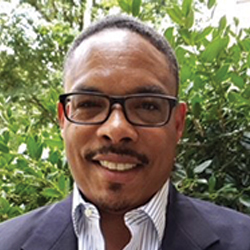 Carleton Barbour is lead scientist in process and analytical development at Emergent BioSolutions, a biotechnology company focused on developing medical countermeasures for biological and chemical threats. He is also the author’s brother.
Carleton Barbour is lead scientist in process and analytical development at Emergent BioSolutions, a biotechnology company focused on developing medical countermeasures for biological and chemical threats. He is also the author’s brother.
Enjoy reading ASBMB Today?
Become a member to receive the print edition monthly and the digital edition weekly.
Learn moreGet the latest from ASBMB Today
Enter your email address, and we’ll send you a weekly email with recent articles, interviews and more.
Latest in Opinions
Opinions highlights or most popular articles
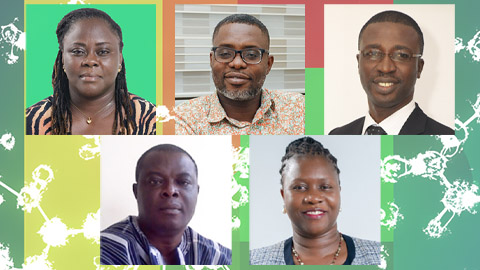
Getting to know scientists half a world away
In a program at Wellesley College, students interview and write about researchers at a university in Ghana.

Let’s make ASBMB awardees look more like BMB scientists
Think about nominating someone outside your immediate network.

A paleolithic peer review
You might think review panels have only been around for the last century or so. You would be mistaken.

Early COVID-19 research is riddled with poor methods and low-quality results
The pandemic worsened, but didn’t create, this problem for science.

So, you went to a conference. Now what?
Once you return to normal lab life, how can you make use of everything you learned?

My guitar companion
A scientist takes a musical journey through time and around the world.

